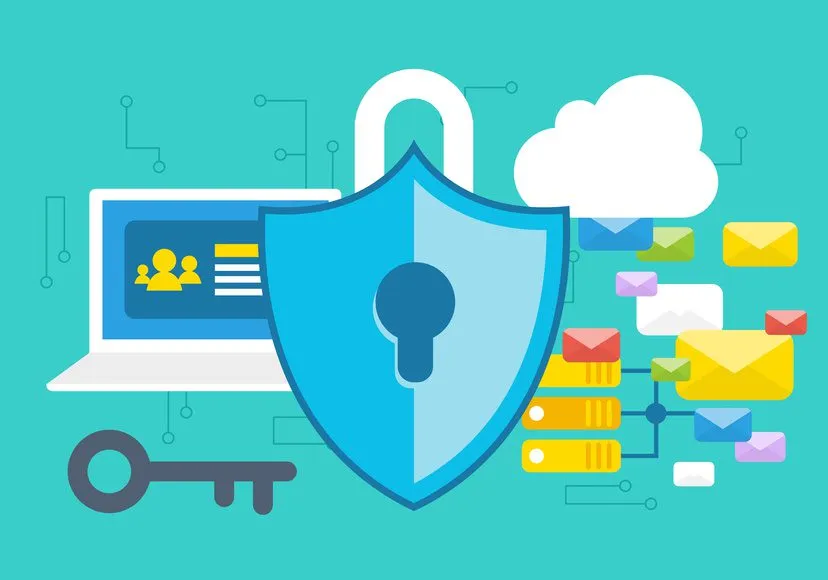Data Encryption Methods to Secure Your Cloud
The cloud enables you to log in anywhere with Internet access to retrieve your files without the fear of potentially losing physical removable medi...

The cloud enables you to log in anywhere with Internet access to retrieve your files — without the fear of potentially losing physical, removable media devices. Several cloud solutions are free, but they don’t always offer leading security options — including data encryption.
What Is Cloud Data Encryption?
Data encryption in the cloud is the process of transforming or encoding data before it’s moved to cloud storage. Typically cloud service providers offer encryption services — ranging from an encrypted connection to limited encryption of sensitive data — and provide encryption keys to decrypt the data as needed.
For instance, Office 365 Message Encryption is a built-in service that encrypts all messages — both inside and outside of the platform. Encryption services like these prevent unauthorized free access to your system or file data without the decryption key, making it an effective data security method.
Keeping information secure in the cloud should be your top priority. Just taking a few preventative measures around data encryption can tighten security for your most sensitive information. Follow these encryption tips to lock down your information in the cloud.
Encrypt Data Before You Upload It
If your cloud service does not automatically encrypt data before it’s uploaded, make sure to encrypt these files beforehand. You can find a third-party encryption tool that will apply passwords and encryption to files after you are finished editing so they are encrypted before upload.
Secure Access With Cloud Cryptography
Cloud cryptography is another way to secure your cloud computing architecture. Cloud computing service providers like Azure employ cryptography to offer a layer of information security at a system level and enables secure access to whoever needs shared cloud services. This layer of encryption is based on the Quantum Direct Key system, which is an advanced system of symmetric encryption keys. Users receive a public and private key pair with a specific ID. Cryptographic cloud computing can also minimize network congestion.
Protect Data at Rest & In Transit With a Cloud Access Security Broker
A cloud access security broker (CASB) is another way you can encrypt data and control your own keys. A CASB offers a single point of visibility and access control into any cloud app in a large enterprise. The control comes through contextual access control, encryption for data at rest and leakage protection of data. A CASB mediates the connections between cloud apps and the general public through several API connectors and proxies.
Maximize Data Security in the Cloud
Beyond encrypting cloud data at the file level, use these cloud data security tips for more protection:
Back Up Your Cloud Data Locally
Although cloud services providers offer redundancy and instant backups, you should always backup your most important data locally — whether on a secured server or laptop. If your cloud-saved data gets lost or corrupted, you can rely on locally backed-up versions. You can also choose to back up your data on a separate cloud. For instance, you might use Dropbox exclusively but backup important files on Google Drive.
Use Encryption Through Your Cloud Services Provider
Many cloud providers offer encryption services to safeguard your data when using their cloud storage. Local encryption will offer an extra layer of security because decryption is necessary before accessing the files or data. Encrypting data at rest is great, but also encrypting data in transport is even better. Find out what type of encryption your cloud services provider can offer.
Map Your Security Needs for Your Cloud Deployment
You should identify the data you need encrypted, and map out a plan with your cloud service provider to prioritize sensitive data. If your sales team is using the cloud for video presentations and graphics accessible for public use, only the account information should be encrypted. Other teams using the cloud to share documentation and source code would require end-to-end encryption at the file level.
Understand the Details of Service Before Working With a CSP
The user agreement usually outlines the details of your plan. Ask about any details left out of the user agreement to clarify how, when and where your data is stored, especially if using a public cloud. Make sure to search for anything that could violate your company’s privacy policy.
Maintain Organization-Wide Awareness Around Data Security
In some situations, data security depends on your online activity. If you access cloud data on a public computer or over an insecure connection, your data may be vulnerable. Do not allow any computer to cache passwords and logins. Make sure to log out from every site or account once you’re done accessing data. Avoid unsecured Wi-Fi hotspots whenever possible. These connections leave your information vulnerable to hackers.
Implementing a data encryption and cloud security plan isn’t easy. At Agile IT, our cloud experts are here to help. Learn more about our managed cloud services or talk to a team member today.





